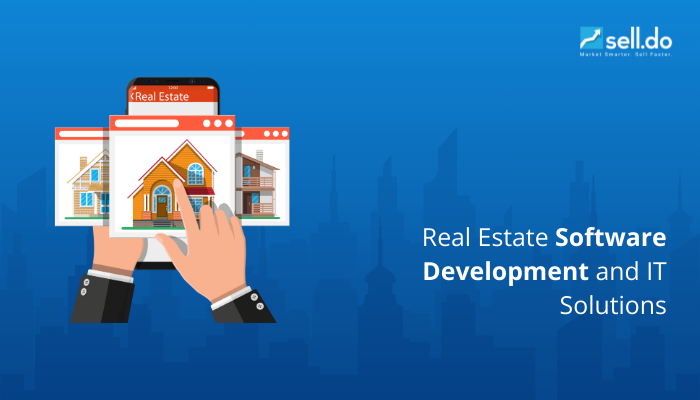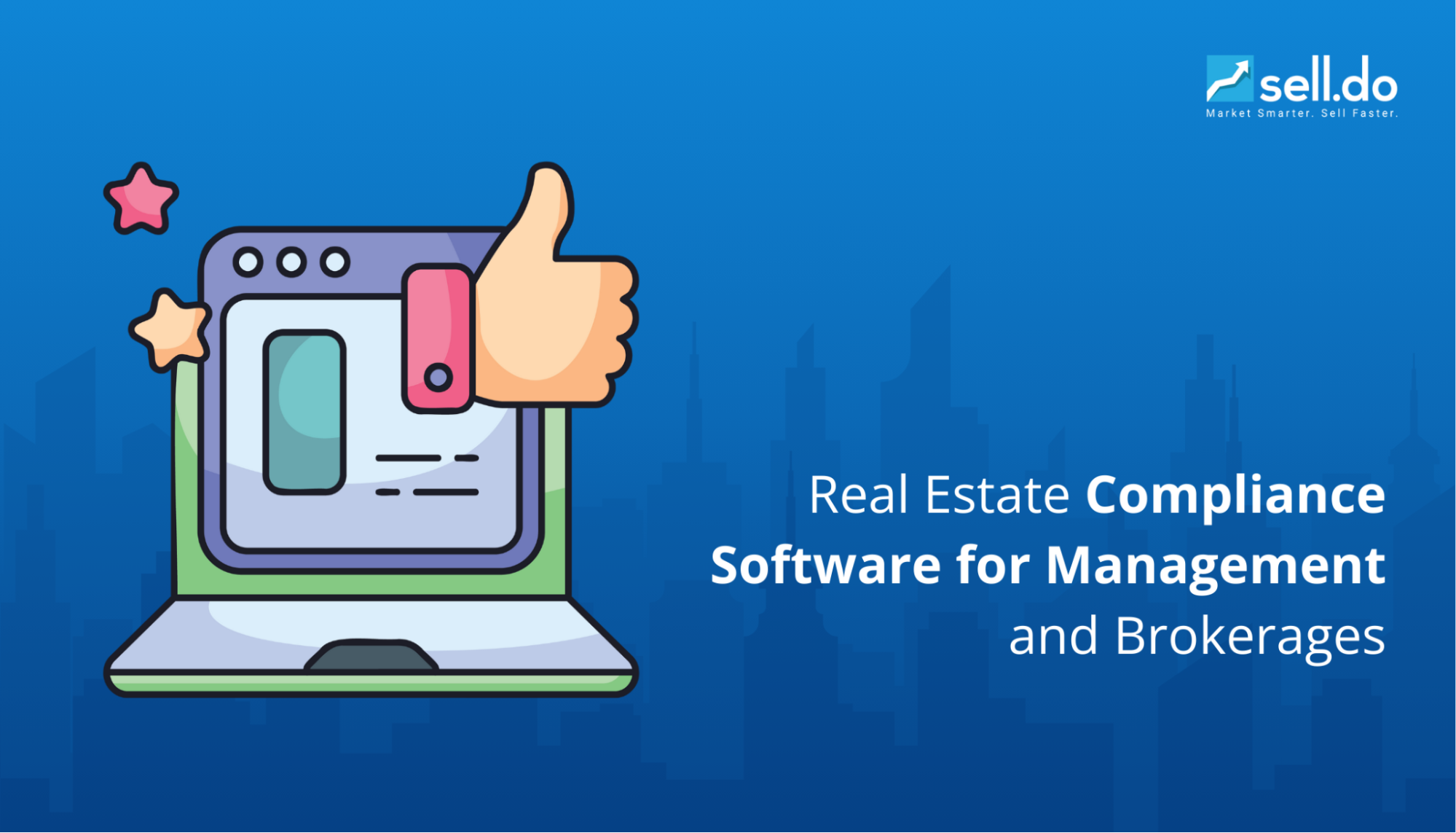If you are like any other real estate developers, you know how hard it gets when it comes to traversing the competitive real estate industry. From setting up sales & marketing strategies, lining up prospective buyers, to delivering an exceptional customer buying journey alongside post-sales service can put a strain on resources, time & money.
However, sifting through all these developments might sound easier than it actually is - that's where CRMs come in!
In this blog, we'll go over the various ways in which you, as a real estate developer, can use Real Estate CRM Platform to grow your business.
-
Effective Lead Management:

CRM for real estate business enables developers to manage their leads more effectively, which in turn helps them to expand their businesses. By keeping track of leads and their contact information, developers can follow up with potential customers and convert more leads into sales. In addition, a CRM system can help developers to automate their marketing and sales processes, making it easier for them to scale their businesses.
-
Digital Inventory Management:

Digital inventory management is one of the most important aspects of running a successful real estate business. A Real Estate CRM can help you keep track of your
- Listings
- Customers,
- Prospects
It can also help you automate many of the tasks associated with managing your inventory, such as:
- Creating and sending listing alerts
- Tracking customer inquiries and
- Generating reports
When used effectively, digital inventory management via a Real Estate CRM can be a powerful tool for expanding your business. It can help you stay organized and save time on administration.
-
Store Accurate Information about the Customers:

In order to expand their business, developers need to be able to store accurate information about their potential and current customers.
CRM for real estate developers keeps track of this crucial information, as well as any other important data that they may need in order to run their business effectively.
By having a system in place to capture and organize this data, developers will be able to make better decisions about how to grow their business and serve their customers better.
-
Deploy Drip Campaigns:

Drip campaigns are a great way to nurture leads and turn them into customers. With a real estate CRM, you can easily set up and manage your drip campaigns. You can segment your leads into different groups and send them targeted content. This will help you close more deals and grow your business.
-
Improve Follow-ups:

With a CRM, you can set up automatic reminders for yourself or your team so that no one misses a beat. You can also track which methods of communication are most effective so that you can focus your efforts on where they'll be most productive. A well-run real estate development business is all about efficient follow-up, and a real estate CRM solution will help you achieve just that.
-
Learn from Reports & Dashboards:
A Real Estate CRM enables developers to expand their business by providing detailed reports and dashboards that allow developers to track their progress and ROI. Here’s how developers can make informed decisions on how to expand their business.
- By understanding where their leads are coming from
- How many deals they are closing, and
- Which marketing campaigns produce the most results
Additionally, a Real Estate CRM can help developers track their sales pipeline and identify areas where they need to improve.
-
Improve Productivity & Efficiency:
A real estate CRM can help developers improve their productivity and efficiency in a number of ways. By keeping track of leads and customer interactions, a CRM can help developers focus their time and energy on the most promising prospects.
Additionally, a CRM can automate many of the tasks associated with selling real estate. This frees up developer time so that they can focus on other aspects of their business.
Finally, a real estate CRM solution provides valuable insights into customer behavior, preferences, and trends. This information can help developers make more informed decisions about where to allocate their resources.
-
Streamline Operations:

This step entail some of the benefits mentioned above. A Real Estate CRM can help developers to streamline operations and expand their business in several ways:
- Providing a central database for all customer and prospect information
- Automating key processes such as lead generation, follow-up, and contract administration
- Providing comprehensive reporting and analytics features
- Integrations with other software applications such as accounting, project management, and marketing
-
Track Full Sales Pipeline:
Tracking the full sales pipeline also allows developers to identify any bottlenecks in the process. This information can be used to make adjustments to the sales process, ensuring that deals move through the pipeline more quickly and efficiently.
Ultimately, tracking the full sales pipeline is essential for any developer who wants to expand their business. With a real estate CRM in place, developers can focus on what's important - growing their business and closing more deals.
In Conclusion:
A real estate CRM is a powerful tool that enables developers to expand their business in many ways. By keeping track of customer interactions, automating marketing tasks, and providing valuable insights into the customer journey, a real estate CRM can help developers to grow their business and succeed in today's competitive market.
If you're looking for ways to expand your real estate business, consider investing in a Real Estate CRM system — it could be the best decision you ever made.













Leave a comment
Comments (0)
Be the first one to comment.